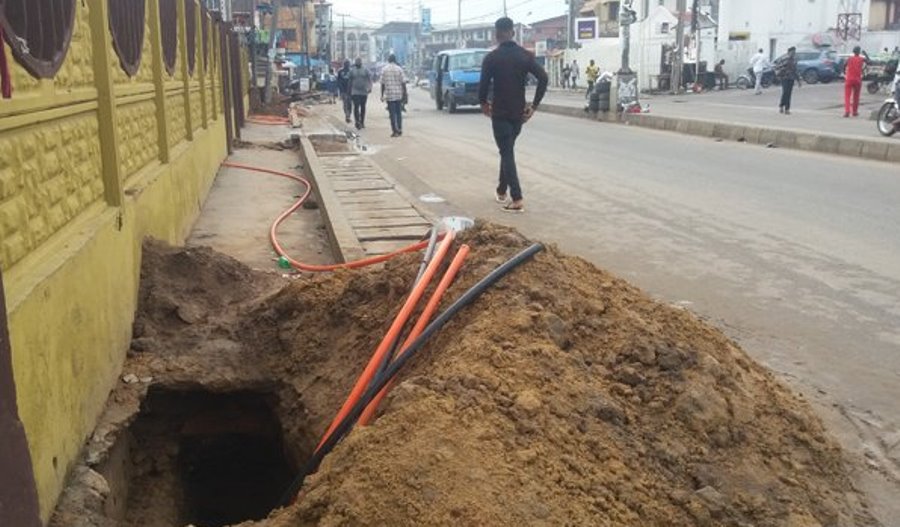The recent decision by Mercury Bank to cease serving customers from several countries, including Nigeria, has sent shockwaves through our tech ecosystem.
Because I work closely with Nigerian founders, I’ve witnessed firsthand the ripple effects of this move. Mercury cited Know Your Customer (KYC) compliance issues as the primary reason, but this blanket ban raises serious questions about bias, missed opportunities, and the global perception of Nigerian businesses. This decision doesn’t just impact individual startups; it threatens to undermine the progress of our entire tech sector.
Today, I want to throw light on the implications of Mercury’s decision, the challenges it highlights, and most importantly, how we can turn this setback into an opportunity for growth and change.
The reality of KYC challenges in Nigeria
Recently, I attended a meeting where they were encouraging startups to invest and list in London. When I asked about their due diligence requirements for African startups,while they claimed that African Startups are not going to be subjected to different due diligence requirements, the reality on ground tells a different story. Africa unfortunately doesn’t have the same standards across the board, and oftentimes in putting us in a box as they others, these jurisdictions completely miss the unique realities we operate in.
This global misunderstanding extends to local regulators too. Just days ago, I sat with a regulator to discuss a license for my client. What started as excitement quickly turned to frustration. The requirements they asked for were absurd — it felt like they wanted my client’s grandfather’s mother’s birth certificate!
These experiences underscore Nigeria’s complex KYC landscape. We lack a comprehensive data framework, and our address system doesn’t match Western standards. But these challenges don’t make us uncreditworthy. They’re our reality, and we’re innovating within it. Startups like Prembly are tackling address verification creatively, adapting to our terrain where even Google Maps falls short.
The real issue isn’t our challenges; it’s the reluctance of international entities to understand and adapt to our local context. They need to ask: how are Nigerian banks operating and getting things done? That’s the key to truly doing business here.
These KYC challenges and the resulting decisions like Mercury’s have far-reaching implications for our startup ecosystem. It’s not just about banking; it’s about our global perception and trustworthiness as a business community.
I’ve seen brilliant Nigerian founders struggle to secure international partnerships or investments simply because of their nationality. It’s heartbreaking to watch a startup with groundbreaking technology get sidelined due to outdated perceptions of Nigeria.
This distrust isn’t just about our present; it’s rooted in our past challenges with fraud and economic instability. But it completely ignores the progress we’ve made. Our fintech sector is booming, our e-commerce platforms are revolutionising retail, and our edtech startups are bridging educational gaps.
As ecosystem players, we need to work harder not just on compliance, but on changing this narrative. It’s a challenge, but it’s one we must tackle head-on for the future of Nigerian tech.
How Mercury should have handled this
While I understand Mercury’s need to manage risk, their blanket ban on Nigerian customers is shortsighted at best and discriminatory at worst.
What’s particularly troubling is that this ban extends to Nigerians living and working in the U.S., who have opened accounts there. If it’s truly about KYC, why close these accounts? It smacks of bias and raises serious questions about their decision-making process.
The irony isn’t lost on me that Mercury’s CEO is from Pakistan, another country on their ban list. Should he close his own account too? This inconsistency further undermines their rationale.
Instead of this heavy-handed approach, Mercury could have explored partnerships with local entities. Why not link with Nigerian bank accounts for additional KYC? Or work with our address verification startups? There are ways to mitigate risks without shutting out an entire market.
This decision reflects a broader problem: the tendency of international companies to make decisions about Africa without really understanding our context. There’s often a lack of nuanced understanding of our markets.
Mercury’s approach is not just a missed opportunity for them; it’s a setback for our entire ecosystem. It reinforces negative stereotypes and makes it harder for other Nigerian startups to gain trust internationally. We need partners who are willing to understand our unique challenges and work with us to overcome them, not those who take the easy way out by simply banning us.
The role of infrastructure, regulation, and education in innovation

The Mercury situation underscores a fundamental truth: infrastructure is the backbone of innovation.
In Nigeria, our tech growth is heavily concentrated in urban centres, particularly Lagos. But what about the rest of the country? What about Iseyin? Ikpoba Hill? Afikpo? Birnin-Kebbi? These aren’t just random names – they’re real places with real potential, but they’re being left behind in our digital revolution.
Even in urban areas, we face challenges. I was in a meeting where we were using Google Maps to locate a potential office space. The app took us to a construction site – the map hadn’t been updated to reflect recent changes. These may seem like small issues, but they add up, creating friction in our business operations.
We can’t technology our way out of these infrastructure problems. No amount of innovation can fully compensate for a lack of reliable electricity or internet connectivity. This is where we need concerted efforts from both the private sector and the government.
As we push for better KYC solutions and global recognition, we must also advocate for better digital infrastructure across the country. Only then can we truly unlock the potential of Nigerian tech and create solutions that work for all Nigerians, not just those in major cities.
Unfortunately, our regulators often lack understanding of the digital economy’s realities. They’re still operating with a mindset that doesn’t account for the speed and agility required in the tech world. Until we bridge this gap between regulation and innovation, our startups will continue to face unnecessary hurdles.
Addressing our infrastructure and regulatory challenges naturally leads us to another critical issue: education. Our current system is woefully unprepared for the digital economy.
Why aren’t we teaching coding in primary schools? Why is our computer science syllabus stuck in the past? We need a dual-track system: one for traditional degrees, another for vocational and tech related skills.
I’ve met many founders who are self-taught programmers because their university education didn’t equip them for the real world.
Moreover, our focus on theoretical knowledge over practical skills is holding us back. We need to reimagine education, emphasising problem-solving, critical thinking, and hands-on experience.
This isn’t just about producing more tech workers. It’s about creating a workforce that can innovate, adapt, and compete globally. Without this foundation, our efforts to build a thriving tech ecosystem will always be limited.
So what can we do?

Of all I have mentioned so far, the perception problem is perhaps our biggest hurdle. As Nigerians, we’re often viewed through a lens of suspicion internationally, thanks to past issues with fraud and economic instability. But this blanket distrust ignores the progress and innovations happening here.
I’ve seen this firsthand in international business meetings. The moment you mention you’re from Nigeria, there’s a subtle shift in the room. It’s frustrating because it overlooks the incredible work our startups are doing.
We need to actively shape our narrative. Hollywood sold the ‘American Dream’. Nollywood inadvertently made Lagos the symbol of success within Nigeria. Now, we need to sell the ‘Nigerian Innovation Story’ to the world.
This isn’t just about individual success stories. It’s about our collective narrative. We need a concerted effort to rebrand Nigeria on the global stage. This means showcasing our successes, being transparent about our challenges, and demonstrating how we’re overcoming them.
It’s a long game, but it’s crucial. Because until we change this perception, our startups will always face an uphill battle in the global market.
What we’re dealing with is more than just a PR problem. It’s a fundamental misunderstanding of our realities and potential. We need to show the world that Nigeria isn’t just a place of challenges, but a hotbed of innovation, resilience, and untapped opportunities.
This shift in perception won’t happen overnight. It requires consistent effort from all of us – entrepreneurs, policymakers, and everyday citizens.
As startup founders, it’s crucial to innovate within our realities. Don’t just copy Western models; create solutions that address our unique challenges. Document your journey, share your successes, and be transparent about your challenges. Your story is part of the larger Nigerian tech narrative.
As lawyers and advisors, we need to push for better regulations. We should be bridges between the tech community and regulators, helping each side understand the other’s perspective. Let’s advocate for policies that foster innovation while ensuring necessary protections.
For the wider tech community, let’s amplify our success stories. Create content, speak at international conferences, and engage with global media. Every positive story helps shift the narrative.
We need the government to step up too. Invest in digital infrastructure beyond urban centers. Reform our education system to prepare students for the digital economy. Create policies that attract international investment and partnerships. We need a Ministry of Digital Economy that actually facilitates growth rather than hindering it. We need regulations that protect consumers without suffocating innovation.
Lastly, let’s collaborate more. Form industry associations, pool resources for research and development, and present a united front in international engagements.
Changing global perception is a marathon, not a sprint. But with consistent effort and collaboration, we can reshape the narrative around Nigerian tech and create a more conducive environment for our startups to thrive globally.
The Mercury Bank situation, while disappointing, is an opportunity for reflection and action. It highlights the work we need to do in improving our infrastructure, updating our education system, refining our regulations, and most importantly, changing global perceptions.
Nevertheless, I remain optimistic about Nigeria’s tech future. Our startups are resilient, innovative, and solving real problems. We’re not asking for special treatment, just fair consideration.











